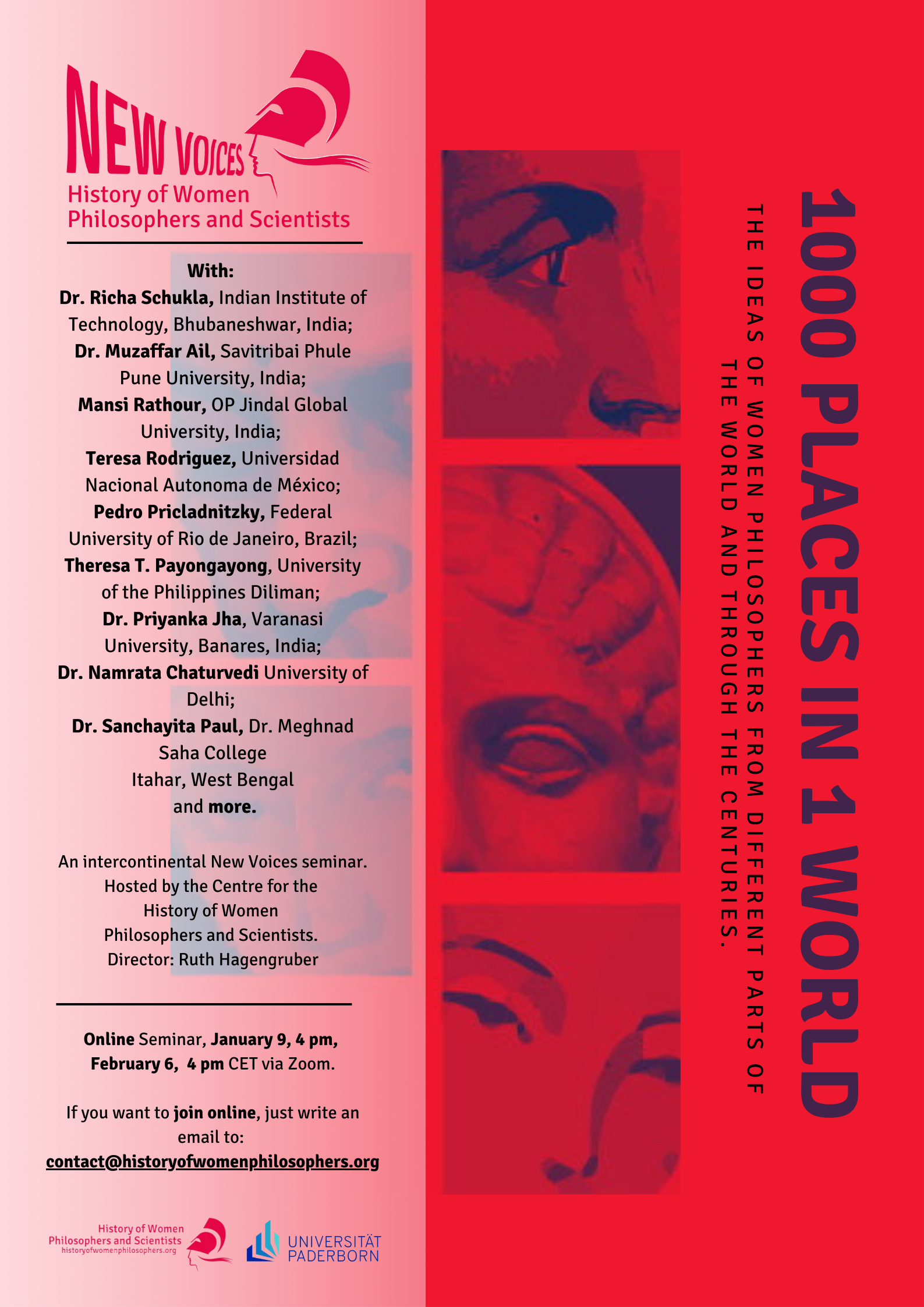 We started the year with a lecture series on 1000 Places 1 World where we welcomed researchers to present on women philosophers around the world! We listened to talks on Womens Voices from India, Mexico, Brazil and Philippines. Here are some examples:
We started the year with a lecture series on 1000 Places 1 World where we welcomed researchers to present on women philosophers around the world! We listened to talks on Womens Voices from India, Mexico, Brazil and Philippines. Here are some examples:
Indian thought remains at the margins of global academic philosophy that is dominated by an overwhelming presence of male Western philosophers. Paradoxical as it may sound, the marginalized discourses of Indian philosophy (generally characterized by the classical Indian school systems) rarely achieve the status of logos when it comes to the presence of women philosophers within it. It (akin to the Western philosophical discourse) remains mainly guarded by male philosophers and thinkers ranging from Shankar to Gandhi and Buddha to Ambedkar. Quite interestingly then, the Indian women thinkers and philosophers witness a double marginalization, where being part of the Indian philosophical discourse they are globally voiceless; and being women, the entire canon of Indian thought also outcastes and side-lines their meaningful contributions. Our engagement with the larger issue of Indian women thinkers at various levels (gender gap, epistemic injustice, gender neutrality etc.) underlines that women thinkers have much to contribute to the domain of global philosophy. While classical Indian philosophy has a rich variety of women philosophers such as Akka Mahadevi, Saint Andal, Lalleshwari, Ubhaya Bharati, and the Buddhist Therigathas among others, the modern and contemporary Indian scenario has Sarojini Naidu, Savitribai Phule, Tarabai Shinde, Ramabai, Kamladevi Chattopadyaya, Aruna Asaf Ali, Margaret Chatterjee, Gurpreet Mahajan, Amita Chatterjee, Kanchana Natarajan, Meena Kelkar, Shefali Moitra, Sharmila Rege, Neera Chandhoke, Meera Baindur, Bindu Puri, Indrani Bhattacharjee, Poornima Agarwal, Priya Rai, Grace Darling, Neeti Singh, Pragati Sahni, Sujata Patel, Narmada Pujari, Kanchana Mahadevan, among others. These women thinkers and philosophers have contributed enormous scholarship in areas like ethics, logic, social and political thought, literature, analytic philosophy, aesthetics, phenomenology, feminism etc., although their voices and discourses continue to remain unnoticed, neglected and unrecognized. It is necessary that as contemporary scholars of philosophy we challenge, study and interrogate the erasure of women thinkers and philosophers and their contributions from the mainstream and malestream academic canons (both Western and Indian).
As a step towards fulfilling this aim, we are co-editing a volume titled Women and Indian Thought: Ancient, Modern and Contemporary. The proposed volume aims to focus on the neglected-but-existent alternative trajectory of Indian women thinkers, their writings and the debates that can be initiated around them.
Read the full Call for papers here.
You cannot copy content of this page








